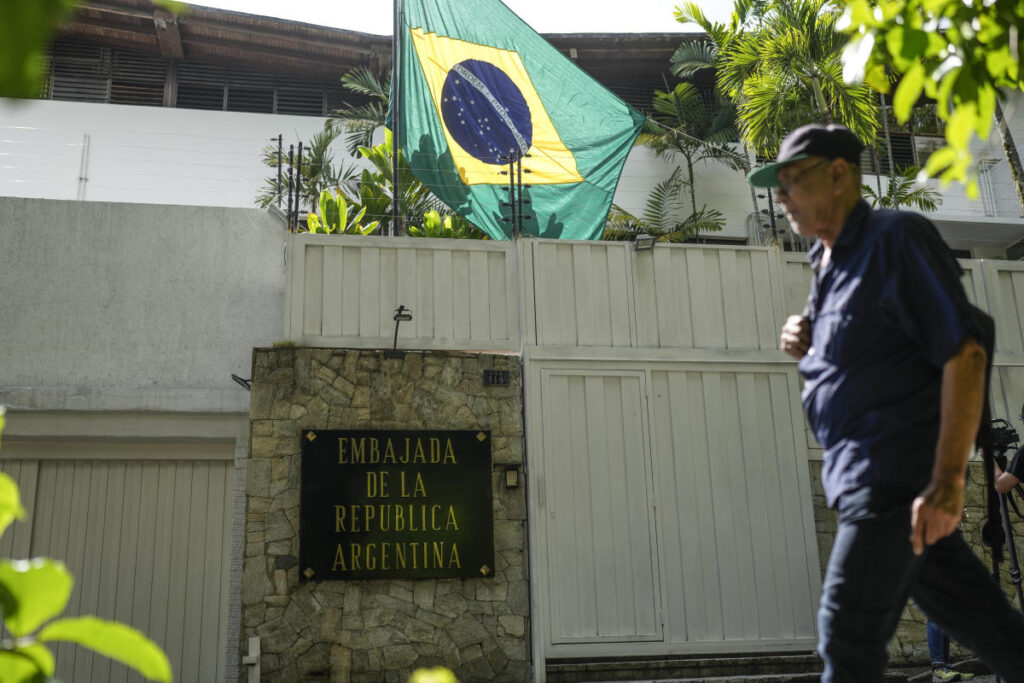In a significant development in Venezuela, Attorney General Tarek William Saab announced that opposition politician Fernando Martínez had voluntarily surrendered to prosecutors after spending nine months in refuge at the Argentine diplomatic compound in Caracas. This compound had served as a sanctuary for Martínez and five other political dissidents, who sought asylum from government reprisals amid accusations of instigating violence to undermine the state. Saab’s statement highlighted that Martínez had chosen to collaborate with authorities following his departure from the diplomatic residence, further entrenching the political tensions between the Maduro administration and its adversaries.
Martínez’s departure from the Argentine embassy came amidst escalating pressures for the remaining opposition members who had sought refuge there. The Argentine government, under President Javier Milei, had granted these individuals asylum after Venezuelan authorities started issuing arrest warrants as part of a broader crackdown on dissent. Among those still residing at the embassy are key figures from the campaign of opposition leader Maria Corina Machado, who has rallied significant support against the Maduro government. The situation at the embassy has become increasingly fraught, as those within have reported consistent surveillance and intimidation tactics employed by Venezuelan intelligence and police forces outside.
The circumstances surrounding Martínez’s exit from the Argentine embassy remain ambiguous. After he left the facility, there were immediate concerns expressed by those who previously shared the space with him. Reports indicated that the remaining opposition figures at the embassy continue to face restrictions to essential services such as electricity and water, allegedly cut off by the Maduro administration in an effort to pressure them into abandoning their asylum. The government, however, has denied these allegations, portraying the diplomatic residence as a site of refuge for individuals accused of fomenting unrest within the country.
Martínez’s political career traces back to the 1990s when he served as a minister of communications and transportation. More recently, he became part of a parallel government established by the opposition following the universally criticized 2018 presidential elections that saw Nicolás Maduro retain power amidst widespread allegations of electoral fraud. His involvement in negotiating between the opposition and the Maduro administration showcases a long-standing entanglement with Venezuelan politics, where the lines between allegiance and opposition are often dangerously blurred.
This development is emblematic of the broader struggles faced by the Venezuelan opposition, characterized by the increasingly authoritarian measures employed by the Maduro government. The conditions leading to Martínez’s decision to leave the safety of the Argentine diplomatic space highlight the desperation and complexity of the current political climate. The initial asylum granted to Martínez and his compatriots reflects both the support of the international community for Venezuelan dissenters and the threats posed by the local government that seeks to stifle such opposition.
As the situation unfolds and more information becomes available regarding Martínez’s cooperation with Venezuelan authorities, the focus on the fate of those still in the Argentine embassy grows. With years of struggle marked by political repression, economic decline, and social unrest, the actions of both local government forces and international diplomatic entities will likely shape the course of Venezuela’s ongoing crisis, as well as the potential paths forward for its opposition figures grappling with survival in an increasingly hostile landscape.

